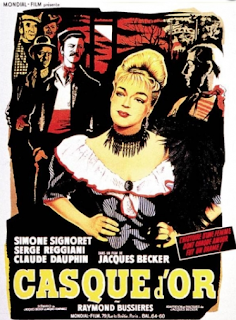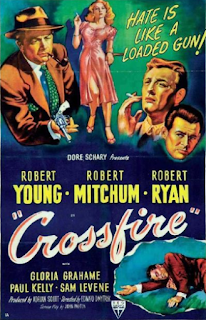Atlantic City (1980)
Lou Pascal (Burt Lancaster) is an aging former gangster who lives in Atlantic City. He runs numbers in poor areas of the city and he is financially supported by Grace (Kate Reid), the widow of his former boss and a faded beauty queen for whom he acts as a caretaker. Lou is obsessed with Sally (Susan Sarandon), a young waitress who lives in the same building: every morning, he watches her from his window as she rubs herself with lemon juice to get rid of the smell of fish. Sally dreams of becoming a croupier and living in Monte Carlo, but first she has to deal with the unexpected return of her estranged husband Dave (Robert Joy) and her pregnant sister Chrissie (Hollis McLaren), with whom he had ran away. Dave crosses paths with Lou and convinces him to help him sell a large amount of cocaine he had stolen in Philadelphia. But the mobsters are looking for him and they are not far behind.
The story of Atlantic City is well-constructed, compelling and captivating - but the plot itself is of secondary importance. Director Louis Malle is more concerned about mood and characters than the actual events or, to put it better, he uses the events to enhance the sense of mood and to build the characters. The result is a mesmerizing, quietly powerful observation of a group of people trapped in an enviroinment that it is not quite toxic but rather sterile, lifeless. The bleak cinematography does not give a sense of ugliness but more of a sense of uncertainty and ephemerality. Atlantic City has changed since Lou was young, and it is still transforming: throughout the films, there are many shots of buildings being demolished and others being built. Even Lou's apartment is soon to be torn down and replaced by a newer construction. All the characters are either stuck in the city, having nowhere else to go (Lou, Grace), or they're trying to leave for a better place (Sally) or they're just visiting. Everything is fleeting in Atlantic City.
But this is not a film that drowns into depressing nihilism: it's a gritty depiction but one that explores every nuance of human behavior, finding the hints of warmth and kindness in the small gestures. The central relationship between Lou and Sally is splendidly written and conceived, but what's especially impressive is how writer John Guare finds the complexity in the interactions between every single character: the complicity and affinity between Lou and Dave; the painful hint of the past love between Dave and Sally; the mutual reliance between Lou and Grace; the damaged tenderness between Sally and Chrissie; the unexpected solace that Chrissie and Grace find in one another. Malle's attention for details is astonishing and grants the story an intimacy a lesser director would have missed.
Of course, the movie wouldn't be the same if it wasn't for the brilliant performances of its two leads. Burt Lancaster gives one of the most affecting performances of his career as the nostalgic Lou, who keeps looking for a chance to relive a long gone past: the actor finds the hunger for life of a man unable to cope with aging and a world that keeps changing around him. He poignantly and subtly portrays every single step of his character's journey into a greater awareness and acceptance of reality, capturing the joy of every small triumph and the melancholy of every loss. Susan Sarandon is equally impressive in a layered, complicated portrayal of a character that is just as puzzling as it is touching: she lets you empathize with her character's troubled situation but never begs for your sympathy. She brings sexuality, desperation, world-weariness but also a hint of hopefulness to the part, with an undercurrent moral ambiguity that makes her performance wildly captivating and unpredictable. It's an unforgettable turn that keeps springing surprises. The two performances are outstanding separately but even better together: Lancaster and Sarandon create a genuinely warm chemistry between the two characters but also effectively convey how they are at different wavelengths. He is approaching the final stage of his existence, while she has a whole life ahead of her. He is looking at the past while she is looking at the future. The supporting cast is uniformly good and there's an especially underappreciated performance from Kate Reid who gives a remarkably vivid performance as Grace: it's a character that seems excessively grotesque at first glance, but the actress poignantly reveals her vulnerability and sensitivity behind her ill-tempered behavior. Her scene with McLaren towards the end, as she reminisces about her past ("I was a princess") is particularly touching.
Atlantic City is not a film for everyone and perhaps it can be off-putting to some. But if you can appreciate its delicacy, its empathy and its attention for nuances, you'll find it a special, rewarding experience. Brought to life by two performances for the ages and Malle's exquisite touch, it's a film of extraordinary, haunting power.
95/100




Beautiful writing! I am very fond of every one involved, particularly Malle.
RispondiEliminaWhile I'm owing it a rewatch, I remember loving the acting in It.
Thank you very much! I have seen very little of Malle's filmography (only this, Damage and Vanya on 42nd Street) but I'm definitely interesting in watching more as I've liked all of them.
EliminaThe acting of the film is great. Sarandon's performance seems to be rather divisive but for me she is incredible in it. Such a rich characterization.
I haven’t seen this yet but i’m very interested in, Sarandon is one of my favourite actresses.
RispondiEliminaI might check it out in the next few days. Ratings for the cast?
Lancaster - 5
EliminaSarandon - 5
Reid - 4.5
Joy - 3
McLaren - 3.5
Really like this film. Glad you loved it!
RispondiEliminaI'm glad we agree!
Elimina